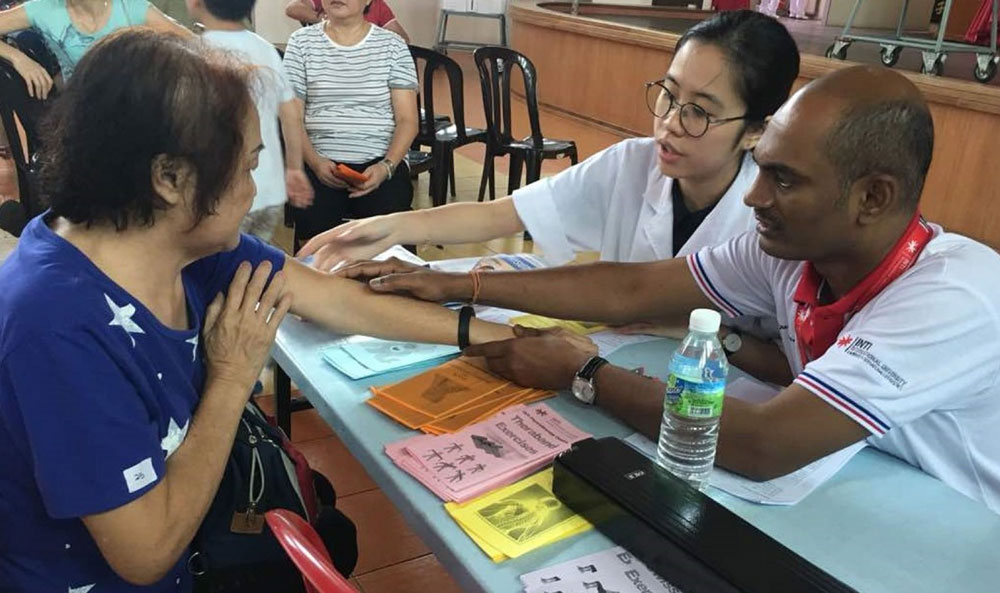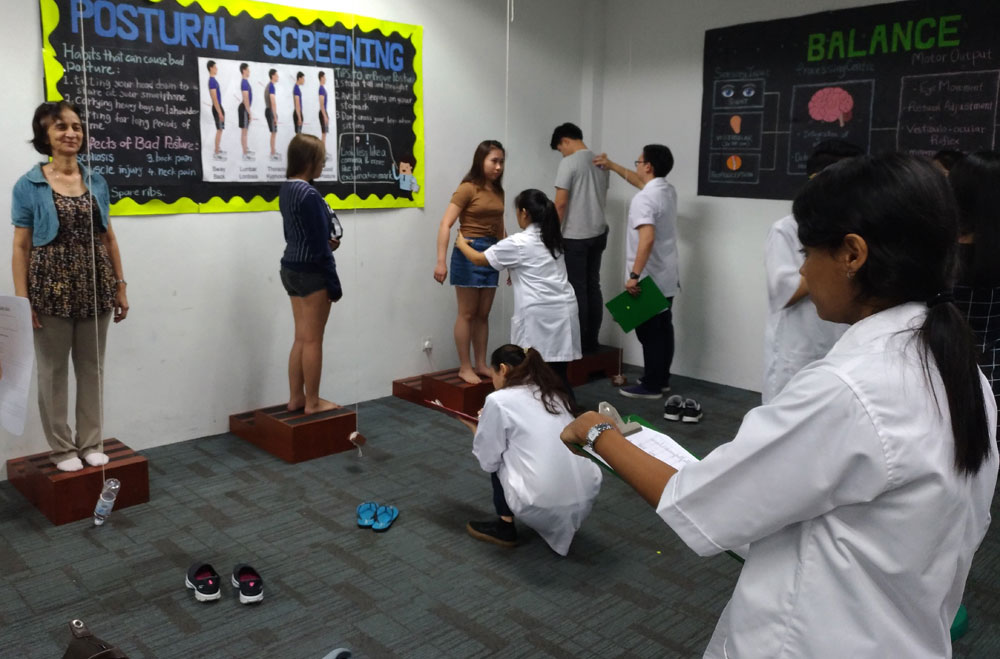As we steadily shift towards the Fourth Industrial Revolution, the debilitating trend of increased physical inactivity and its implications towards public health are drawing both international and national concerns. To shed light on this worrying trend, INTI International University & Colleges brought together two experts to share their points of view on the matter, along with suggesting effective preventive strategies for this 21st-century change.

INTI students and academicians provide health screenings along with personalized exercise recommendations to vulnerable communities to increase awareness on the importance of physical activity.
According to the World Health Organization (WHO), physical inactivity approximately accounts for 3.2 million deaths annually and is among the ten leading causes of death and disabilities in the world . The decline in physical activity levels has been partly attributed to increasing sedentary behaviours during occupational, domestic and recreational activities, along with higher use of “passive” modes of transportation such as cars, trains and buses resulting in more sedentary communities worldwide.
Yew Su Fen, Vice Chairperson of the World Confederation of Physical Therapy – Asian, Western and Pacific (WCPT–AWP), shared that the risks of sedentary lifestyles and its impact to public health is worrying and should be a cause for concern.
“It (sedentary behaviour) increases mortality rates, disabilities, diabetes, and cardiovascular diseases, and remains one of the biggest influencers for one of our world’s biggest global health threats today – noncommunicable diseases (NCD) ,” shares Su Fen.
“In Malaysia, our 2015 National Health and Morbidity Survey reported that a majority of Malaysians are found to be minimally active and in 2016, NCDs were estimated to account for 74% of all deaths nationwide ,” added the former President of the Malaysian Physiotherapist Association.
“Rapid industrial digitization and technological advancements have influenced and continues to influence our nation’s current lifestyles and interactions. As a result, we (health practitioners) are witnessing an increase in physically inactive health related patients amongst all age groups. Preventive measures need to be taken soon,” stressed a concerned Su Fen.

A free public health screening organized by INTI.
To shed more comforting light on this grimacing trend, Thirumalaya Balaraman, Head of Physiotherapy for INTI International University (INTI), shared that there are simple measures individuals can take to minimise the risk of physically inactive health-related concerns.
“Based on WHO’s recommendations, we simply need to ensure we carry out 30-minutes worth of moderate-intensity aerobic exercises five days a week. This could be met through making small modifiable changes to our daily routines such as taking your loved ones for a walk, walking while talking on the phone during business calls, doing house chores, or taking the stairs,” shared Thirumalaya.
“Every small change is beneficial,” he added.
While there are concerns about the rise of technology negatively impacting physical activity, Abdallah Said Mohammed, a former Bachelor’s of Physiotherapy student from INTI, sees it as an opportunity to improve physical health and decrease sedentary behaviour.
“I am currently working on using artificial intelligence (AI) to develop a system that will assist patients to work on their recommended exercises remotely. Once successful, this AI bot will be able to generate personalized exercises for everyone based on their current physique and physical goals, and everyone with access to a laptop or handphone will be able to access these services,” explained Abdallah.
“It is a step towards encouraging people to be more physically active using the help of their gadgets,” he added.
Thirumalaya shared that Abdallah’s research is one of the many initiatives INTI has introduced in encouraging a more physically active community.
“We have a Physical Activity Research Centre (PARC) where students and academicians develop research on emerging epidemics linked to physical inactivity and its impact to public health. It is also a space for students to develop innovative solutions at curbing this global health threat and Abdallah’s outcome is one such example,” shared Thiru.
“We also organize frequent outreach programmes for vulnerable communities where we conduct free public health screenings and provide individualised exercises for individuals who do not have access to quality healthcare services and information,” he added.
“Most importantly, we walk our talk by organizing an annual run that encourages INTI’s students and staff, along with members of the public, to stay active and healthy,” shared Thiru.